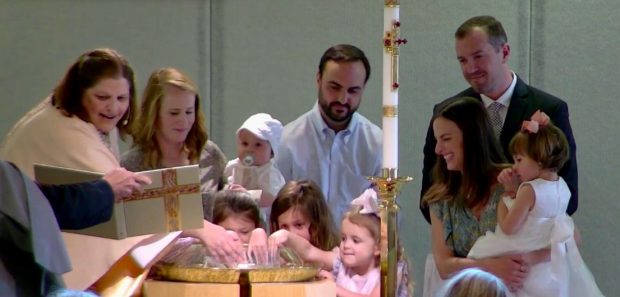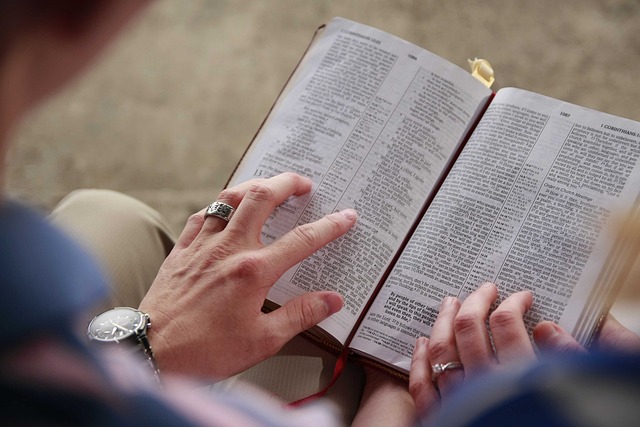Sunday Mornings I 9:30 – 10:15 a.m. I Parish Hall
.Adult Formation does not gather on the first Sunday of the month.
.Adult Formation does not gather on the first Sunday of the month.
The Book of Revelation Videos can be found here.
September 10, 17 & 24 – Bishop Election. Looking at the process, the Diocesan profile and the candidates for election as the next Bishop of Southern Ohio.
You can watch the recordings of these sessions here.
October 8, 15 & 29 – Theology in the 1600’s and 1700’s. Anglican theology and theological practice as distinct from both Catholic and Protestant theologies really developed in the 17th and 18th centuries. We will take a close look at the thinkers and the theology that form a big part of our foundation. Adult Formation will not meet on October 22 because of the Columbus Regional Pulpit Swap.
You can watch the recordings of these sessions here.
November 12, 19, 26 & December 10 – Episcopal Theology 101. We will take a look at how the Episcopal Church does theology and makes decisions.
You can watch the recordings of these sessions here.
January 14, 21, 28 & February 11- Mainline denominations. We will take a look at the mainline Protestant denominations and their theology and polity.
Lent – We will look at how the Bible became a book, how we got the English Bible and the modern translations.
April 14, 21, 29 & May 12 – Revelation. We will do a deep dive into the book of Revelation.
Several members of Saint Mark’s gathered to discuss the book of Philippians. The podcast is the discussion of that book. Please listen and enjoy. If you have questions or feedback you can email Pastor Vicki at rector@saintmarkscolumbus.org or Dan Morton at notvmorton@gmail.com.
 Throughout Sundays in Lent, Sunday morning Adult Formation will focus on the Baptismal Covenant.
Throughout Sundays in Lent, Sunday morning Adult Formation will focus on the Baptismal Covenant.
From the earliest days of the church, those being baptized were called on to confess their faith. The ways this happened changed over time and place, with some form of a Creed being used in many times and places.
In the first Book of Common Prayer in 1549 the promises made by the godparents of the child to be baptized were the Apostles’ Creed broken into three sections as in the 1979 Prayer Book of the Episcopal Church followed by asking if the person wished to be baptized.
In the second Book of Common Prayer in 1552 the Creed was reduced to a single question, again followed only by an expression of the desire to be baptized.
In the 1662 Book of Common Prayer the confession of the Apostles’ Creed remained a single question. This was followed by the minister asking: “Wilt thou then obediently keep God’s holy will and commandments, and walk in the same all the days of thy life?” with the godparents answering “I will” on behalf of the child.
In the first American Prayer Book of 1789, the assumption was that baptism would be administered within a Sunday service where the Creed would be said. The questions asked to the godparents on behalf of the child were: “Dost thou believe all the Articles of the Christian Faith as contained in the Apostles’ Creed?” followed by the question from the 1662 Book. This was the form used in the American Books of Common Prayer of 1892 and 1928 as well.
The Liturgical Movement of the 1960’s and 1970’s led many denominations to go back to the older practice of breaking the confession of the Apostles’ Creed into three questions and to expand the question about keeping and following God’s will into more specific questions. It is out of this movement that the Baptismal Covenant as we have it in the 1979 Book of Common Prayer arises.
The Baptismal Covenant is promised at baptism. It is this Covenant that is confirmed during the Confirmation service and the whole congregation renews its Baptismal Covenant every time someone is baptized.
You can watch the recordings of these sessions here.
Lesser Known Bible Stories

Adult Formation in January will focus on Lesser Known Bible Stories. Pastor Vicki will lead an exploration of a few of the stories of the Bible that not many of us have read (and that don’t get read as a part of the Sunday morning lectionary).
We will look at the stories of: Tamar, Nabal and Abigail; the rape of Tamar; and the Deceptive Prophet.
We will gather in the parish hall from 9:30 – 10:15 a.m. The session will meet January 8, 15, 22, and 29. There is no adult formation on January 1.
In October and November, Pastor Vicki will lead a series that focuses on world religions and Christian denominations.
You can watch the videos of past sessions here.

Read the Episcopal Church’s Charter for Life-Long Christian Formation HERE.